The Coronavirus (Covid-19) has spread across the world igniting a global pandemic. Every country across the world has had to deal with this new virus that suddenly appeared on the map at the end of 2019/early 2020. Puerto Rico has not been spared in having to deal with this new reality.
This virus is not very dangerous to those under 65 and healthy. To most, it is self-limiting meaning you will recover without any outside medical help. In fact, many people will walk around completely asymptomatic and recover without ever even knowing they had it. Healthy children and young adults especially are at little risk for serious illness. Unfortunately, those same mild or asymptomatic people can pass it on to those at higher risk (older age, heart disease, diabetes, lung conditions, cancer) and in some cases it can result in their death. While these same groups are also at risk for other flus and illnesses doing the same, Covid-19 is much more deadly when it strikes.
So while the virus is not very serious to the vast majority of people it IS extremely contagious and spreads much more easily than many other viruses. Therefore it can circulate for a long time before hitting a vulnerable target. This means that 2 to 4 weeks before there is even a case or a death, the virus has hooked itself into a population. This delayed and seemingly sudden increase in illnesses would cause a huge strain on the medical system and result in many deaths (estimates of appx 1-3% of confirmed cases that were severe enough to be tested). But by the time most governments decide to act, it is already too late.
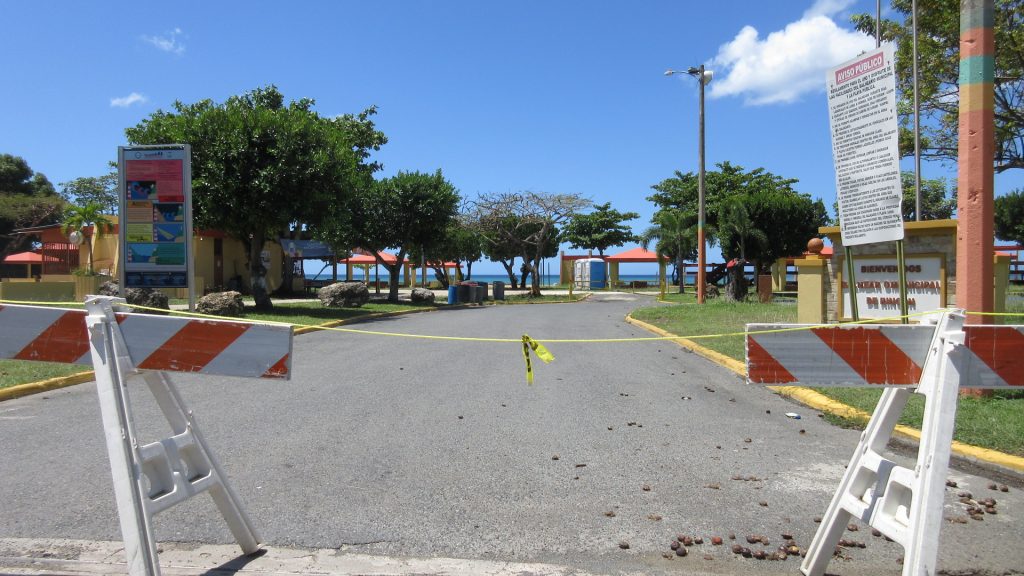
Beaches like the Balneario in Rincon are roped off
The whole world watched from afar as China and then Italy and many others grappled with it, hoping it would be contained there. But being as new and contagious as it was and not having many tests to monitor its spread, we quickly learned how very intricately we all are connected worldwide.
Puerto Rico was bound to see some cases if it didn’t get contained abroad because it is a premier travel destination. People from all around the world frequently visit via planes and cruise ships mainly. There was some talk in February about a cruise ship passenger who was known to have tested positive and then some other large events that would be easy transmitters. Finally in early March the first few cases were confirmed on the island.
On Thursday, March 12 the newly appointed governor of Puerto Rico, Wanda Vazquez, asked for all festivals and large events to be closed and to take personal precautions and take up moderate social distancing. She also enlisted the help of the National Guard. Then on Sunday March 15 with only about 4 hours notice to the whole island, apparently under some sort of guidance, she scolded Puerto Rico for not taking it serious (though there was no indication of that) and doubled down efforts and put the island into one of the world’s strictest most authoritarian lockdowns and by far the most extreme of any state in the US.
Most people (besides ‘essential services’) were only to leave for groceries, pharmacies, take out food, gasoline, hospitals/doctor’s office. A curfew of 9pm to 5am was enacted. A buying frenzy ensued similar to before a hurricane with everyone rushing to the grocery stores and buying everything they could. People who two days before walked around nonchalantly now wore masks and squirted disinfectant on everything. Stores and businesses were stunned by the suddenness of the executive order. Literally overnight, the streets were emptied and patrolled by police and wide-eyed tourists and others were given warnings to get off the beaches or face fines. The friendly, relaxed, loud party island vibe became paranoid, fearful, quiet and policed.
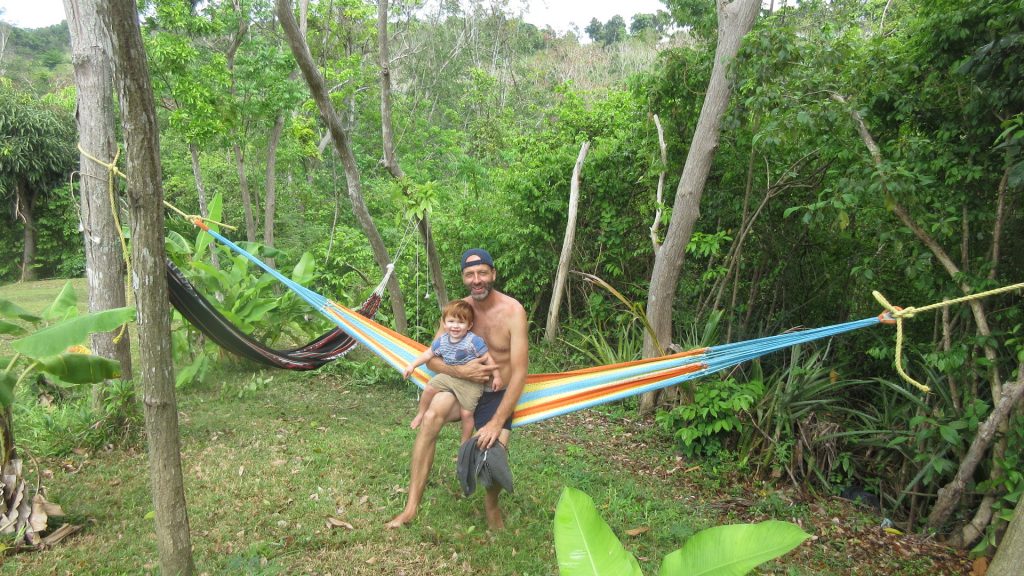
Time to hang some hammocks because we will be home A LOT!
Puerto Rico has reason to be concerned. With an aged population like Italy and a struggling and overburdened medical system, it would not be able to handle the surge of patients that this outbreak will create. It also relies strongly on the US for support and the US has been one of the slowest countries to react to this pandemic. Though lockdowns work to slow down the spread, they are unsustainable because people cannot live cooped up for too long before needing more than just food and medicine not to mention what it will do to the economy (utter collapse) and people’s mental health. Lockdowns also don’t target the source of transmission. For instance, in Rincon we had our first case of a childcare teacher with respiratory conditions die after also contracting the virus. She was married to a police officer who came into more contact than nearly anyone in lockdown. Her son and husband also worked part time in the Econo grocery store, also potentially continuing to spread the virus.
The best practices world wide have been extensive testing. Those who are negative can go about their day in a somewhat restricted manner with moderate societal lockdown measures but for the most part are not limited. Those who are positive go into quarantine and receive care until they recover after which they are immune and no longer a threat and then also go about their lives. In places like Germany and South Korea, their extensive testing has helped them come through as shining stars while maintaining a remarkably stable society and economy.
Obviously Puerto Rico doesn’t have that option now until more tests become available or local labs develop them. So until then we will be waiting in limbo in a sort of house arrest scenario apparently until the rest of the world goes over the peak of the curve and there are more in recovery than new cases (some estimates of early May, but projections vary wildly) and/or we get more tests. The propaganda tells us that we are “stopping” the virus, but most health experts agree that it is likely not fully containable and that most if not all of us will get this virus at some point (or have already had it). What these actions are attempting to do is called ‘mitigation’. It is a last ditch effort when all other hope/plan is gone. The idea isn’t that it will stop it but rather slow it down enough so that the medical system is not inundated all at once, but rather can treat patients as they trickle in and are able get a ventilator to save some lives (known colloquially as the “flatten the curve” method).
Here on la isla there is a sense of solidarity and sacrifice that is heartwarming. People are willing to stay at home under extreme conditions for a month (or more) because it is for the better good. There hasn’t been much civil disobedience and we all feel in it together. But everyone is also counting the days when we can go back to normal. We miss the beaches, our freedom and our friends and family and no one knows how we are going to pay our bills or if there will even be an economy at all after all this is through. This has been especially tough for the small businesses that were barely making it before this in our super fragile economy in Puerto Rico.
As we approached the March 30th deadline for the lockdown order we began to have hope that this imprisonment and grey depressing world would lift up even if just a little. But just a few days before the order was to expire, the governor extended it another 2 weeks until April 12 which is Easter Sunday. It also included even more restrictions including which days you could drive based on the number on the license plate and with no one driving on Sundays and even earlier curfew of 7pm. A few days later, she did finally allow some exceptions such as a few hours for car/tire repair (that we desperately need) and some hardware stores.
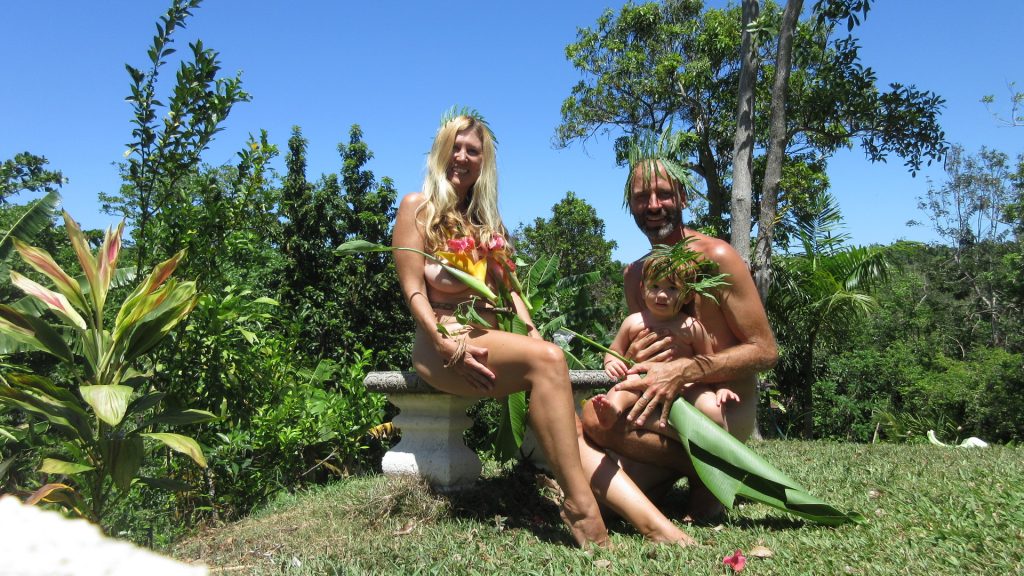
Playing our own version of Naked and *not* Afraid
As for us, this has been very difficult. While we have no fear at all of the virus or illness personally since we are at extremely low risk (and healthy babies and children have little to no risk), we have been affected by the lockdown. Through this I am hit by the trauma from Hurricane Maria, my dad’s death from lung failure and my long scary stay in the hospital here. We have missed more farmer’s market days than even after Aeden was born and all bookings for the cabana have been cancelled. The disproportionate fear and paranoia of people (everyone looks like a ‘vector’) is something we are not used to and the patrolling police state is altogether dystopian. We thankfully have plenty of space on the finca and have been cleaning and clearing the land and the house. I still go through the stages of grief: Denial, Anger, Bargaining, Depression, Acceptance often and especially when I feel unrequited hope that this might be over sooner than later.
Compared with the slow and ambivalent reaction in the states, we are in much better shape here in Puerto Rico because our governor took swift and decisive action, albeit a little too late and with extreme Draconian measures. But at this point in time all we can do is wait. And wait. And wait. And then deal with the ever rumbling aftermath that this tidal wave washed over the world. Here in Puerto Rico, we’ll be ok. We have dealt with one disaster after another and people here are made of a resilient and caring cloth. We will get through this together, even if it means standing 6 feet apart.

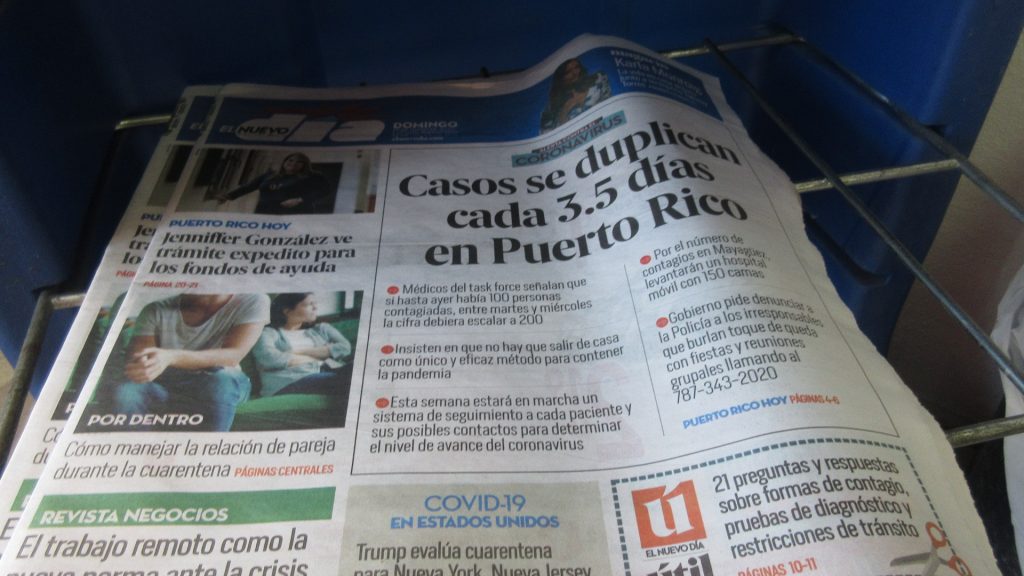
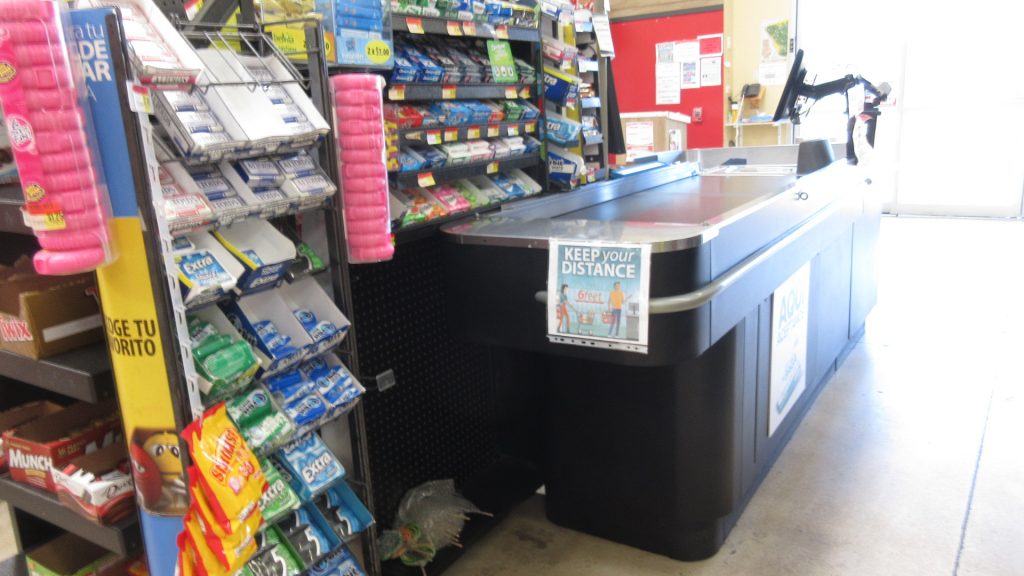
Man, PR really loves those curfews, so glad I’m not there anymore.
I love all your videos and pictures.Im from PR.and have land up on the mountains of Adjuntas
Thanks Nelson! I want to go up to Adjuntas and visit the waterfalls and see the bridge there!